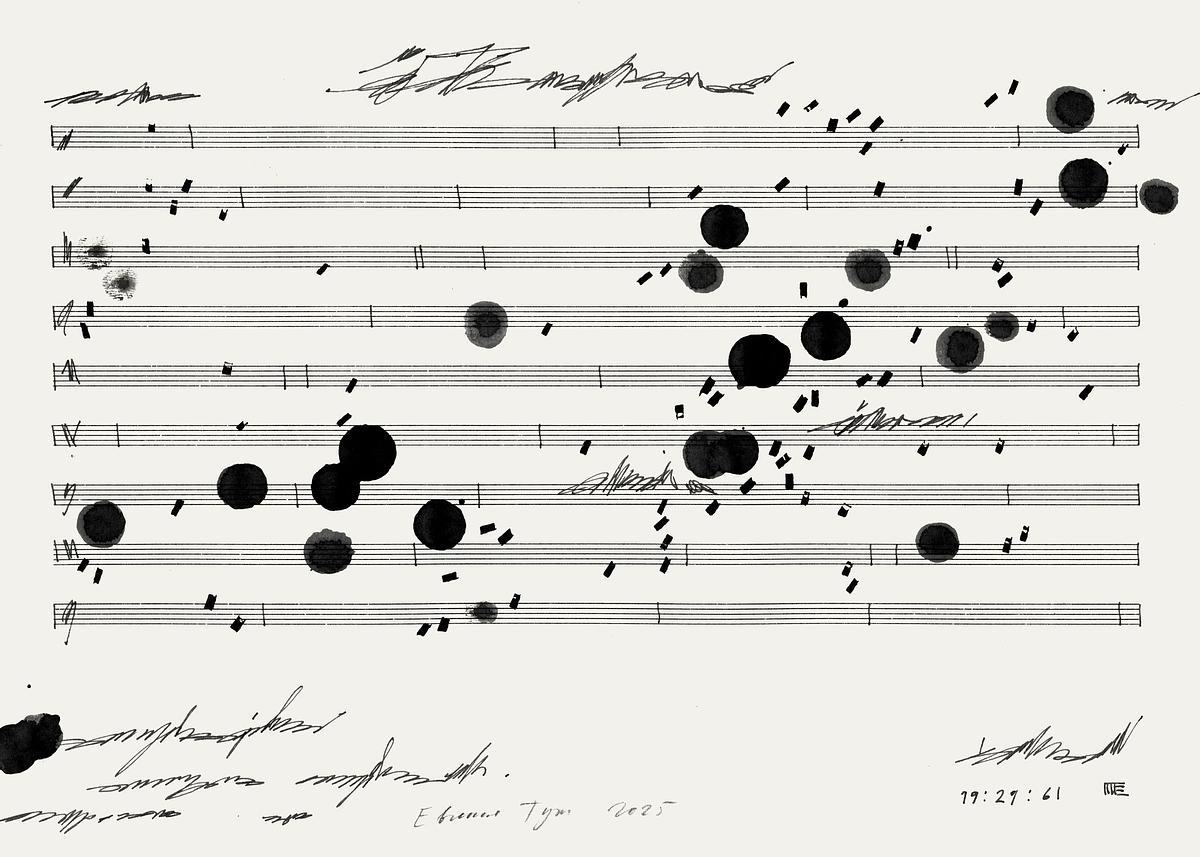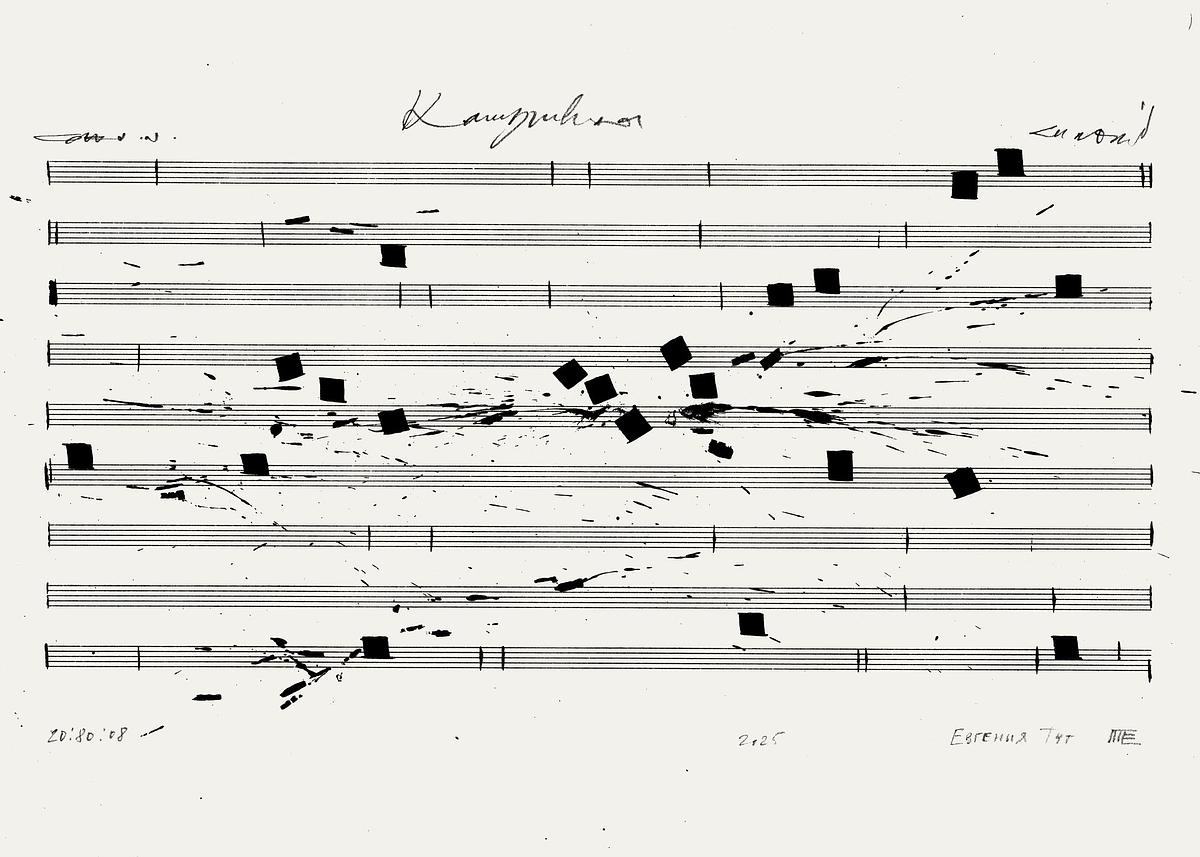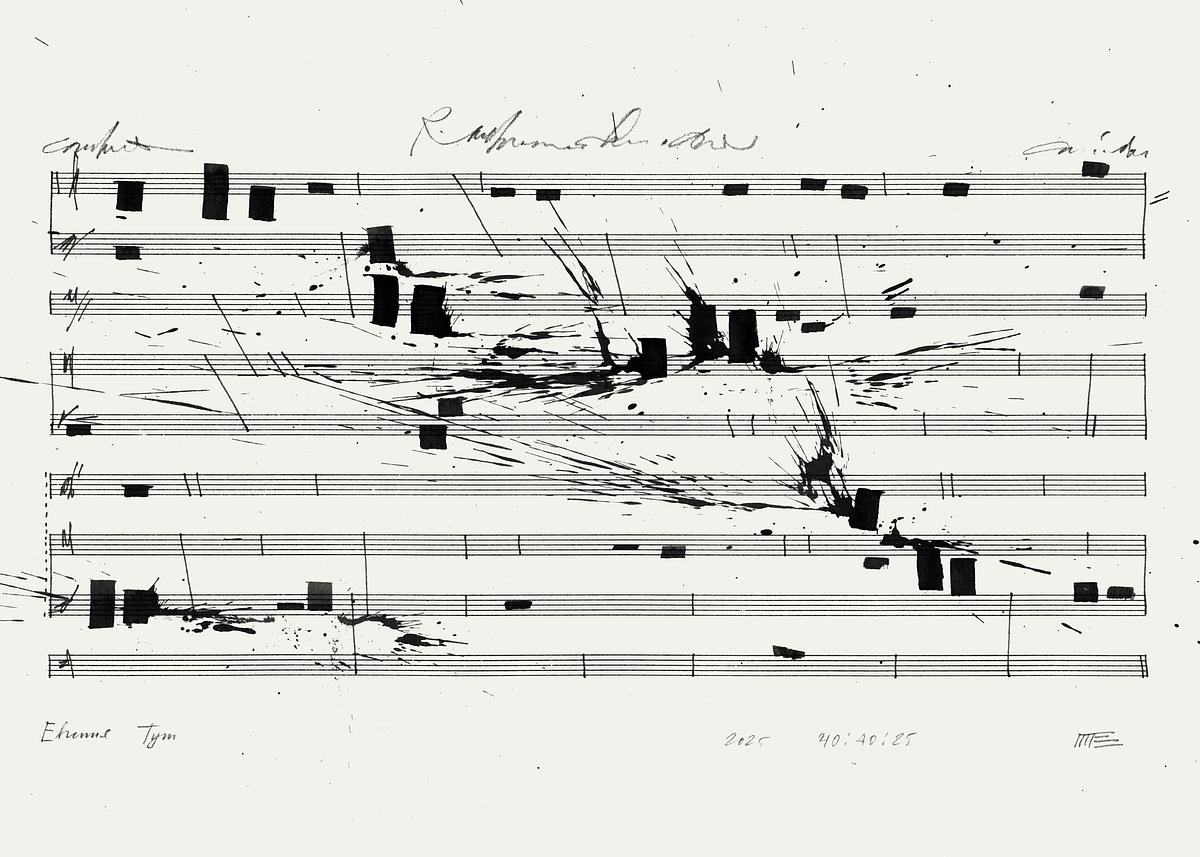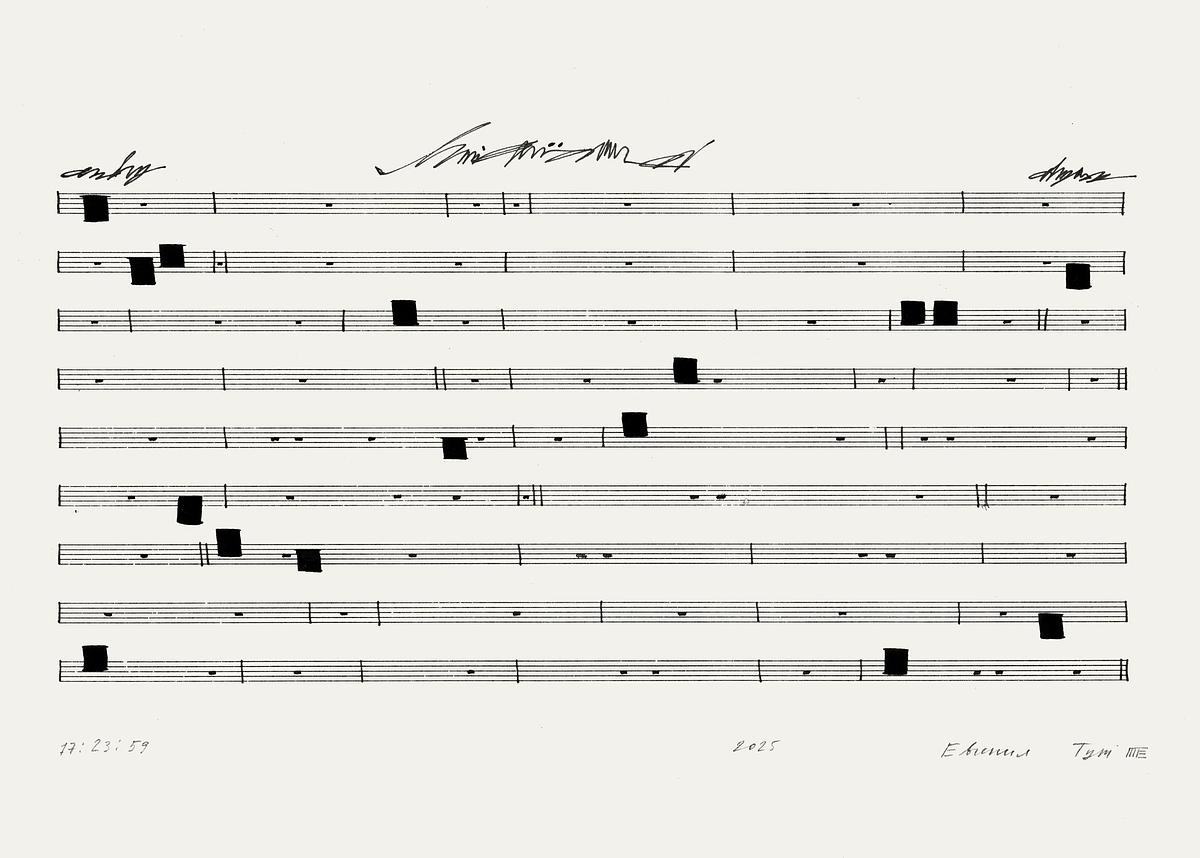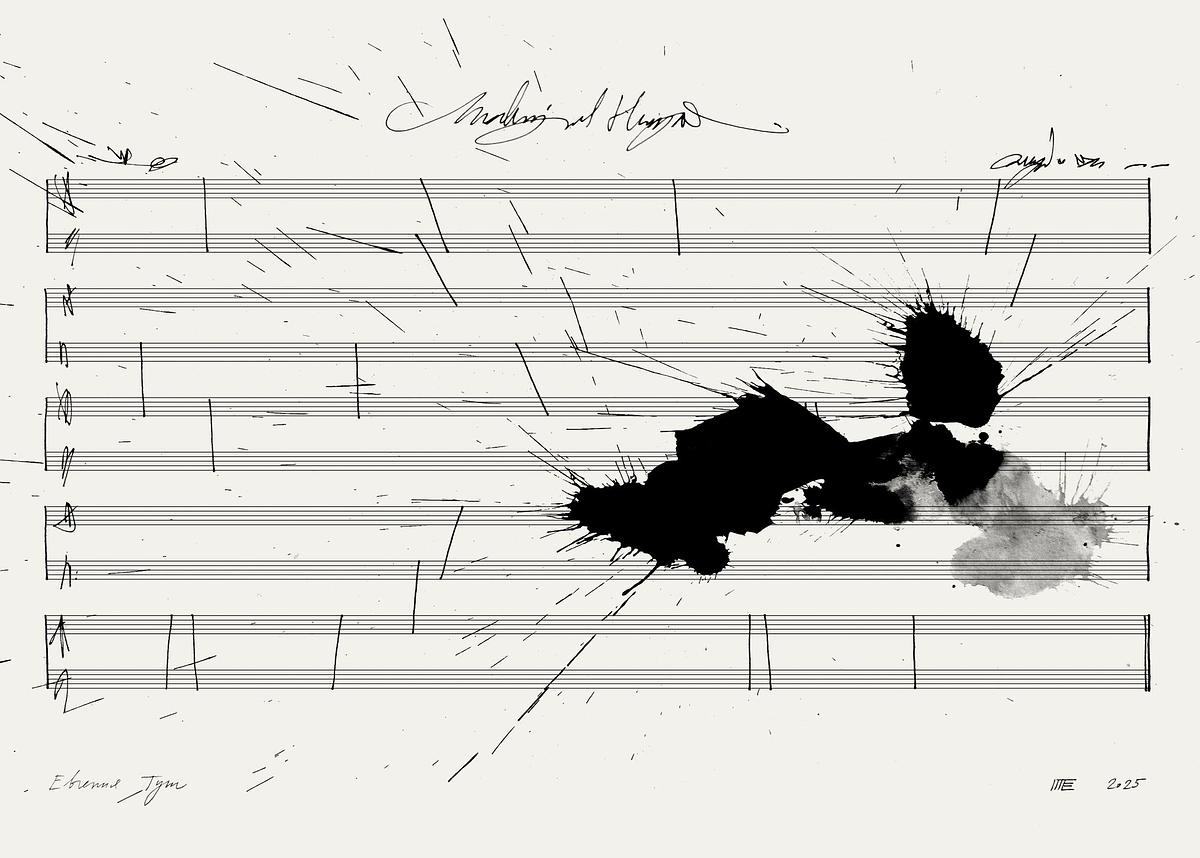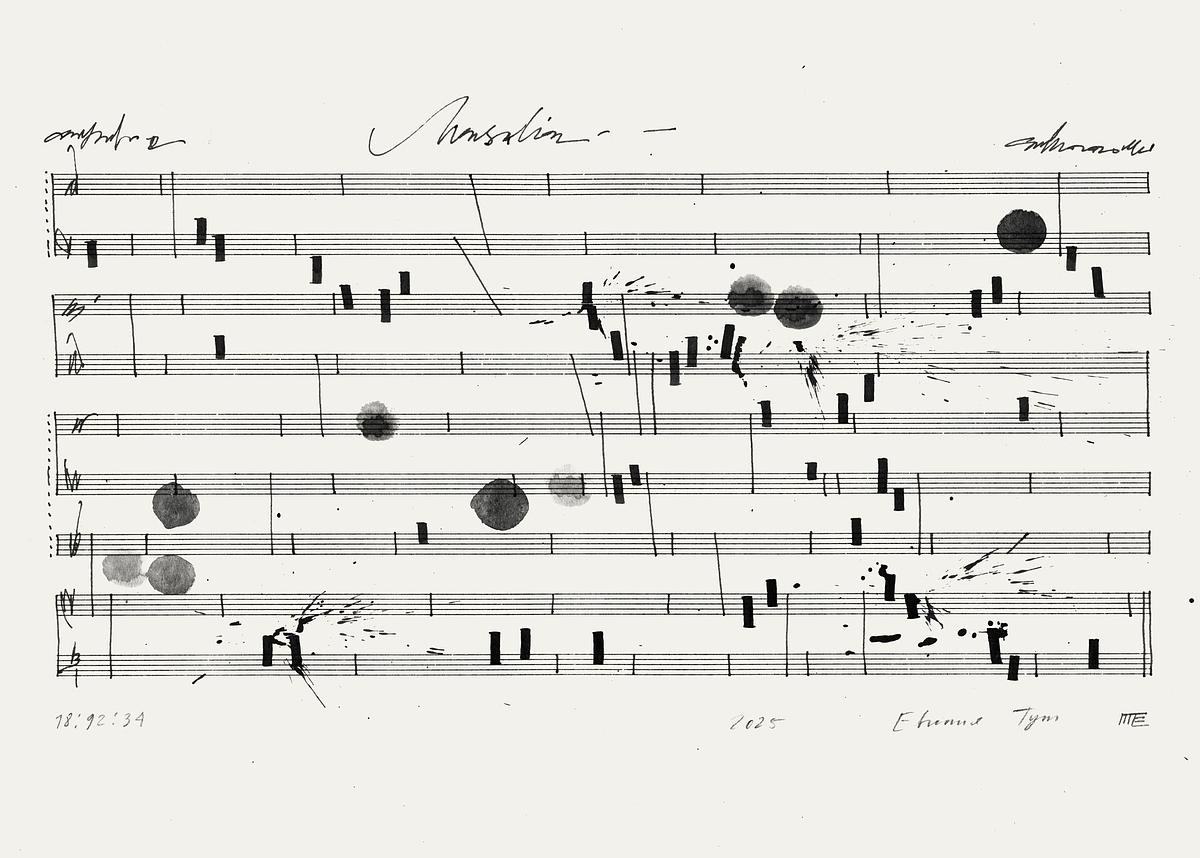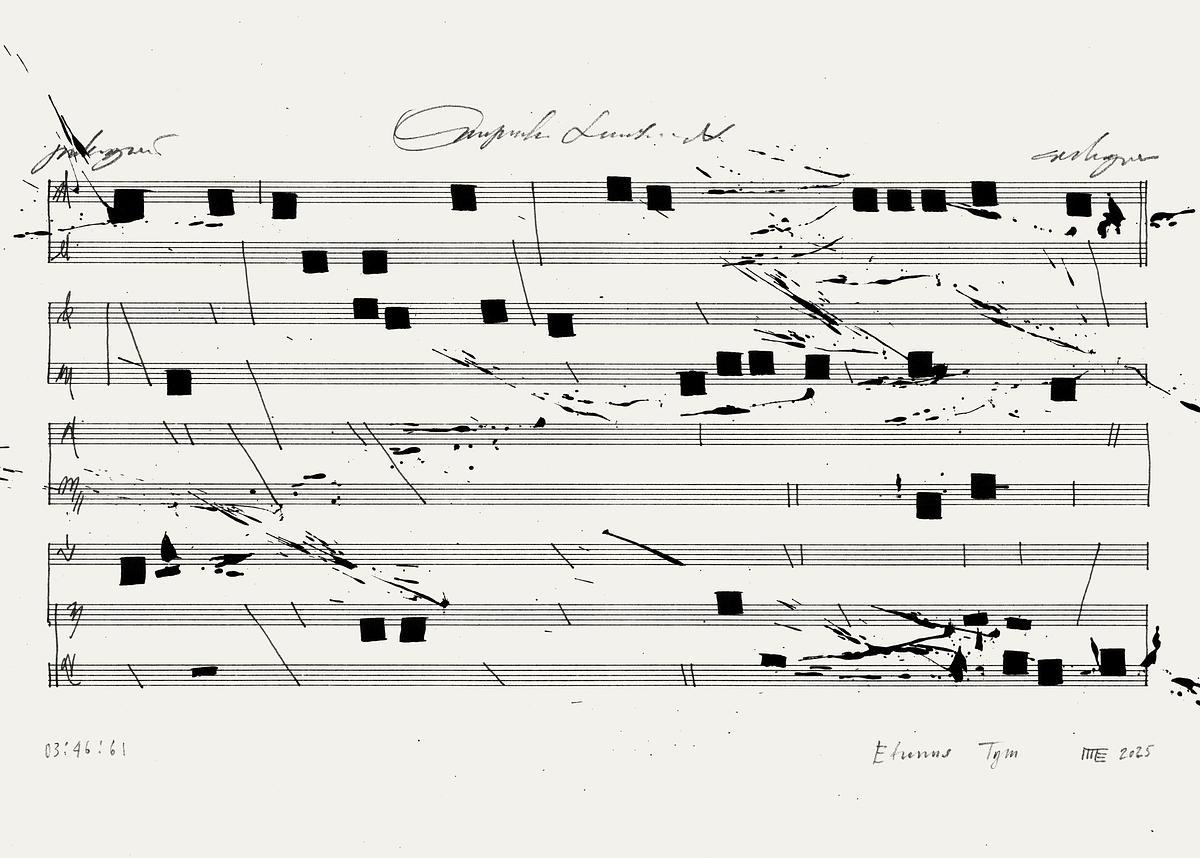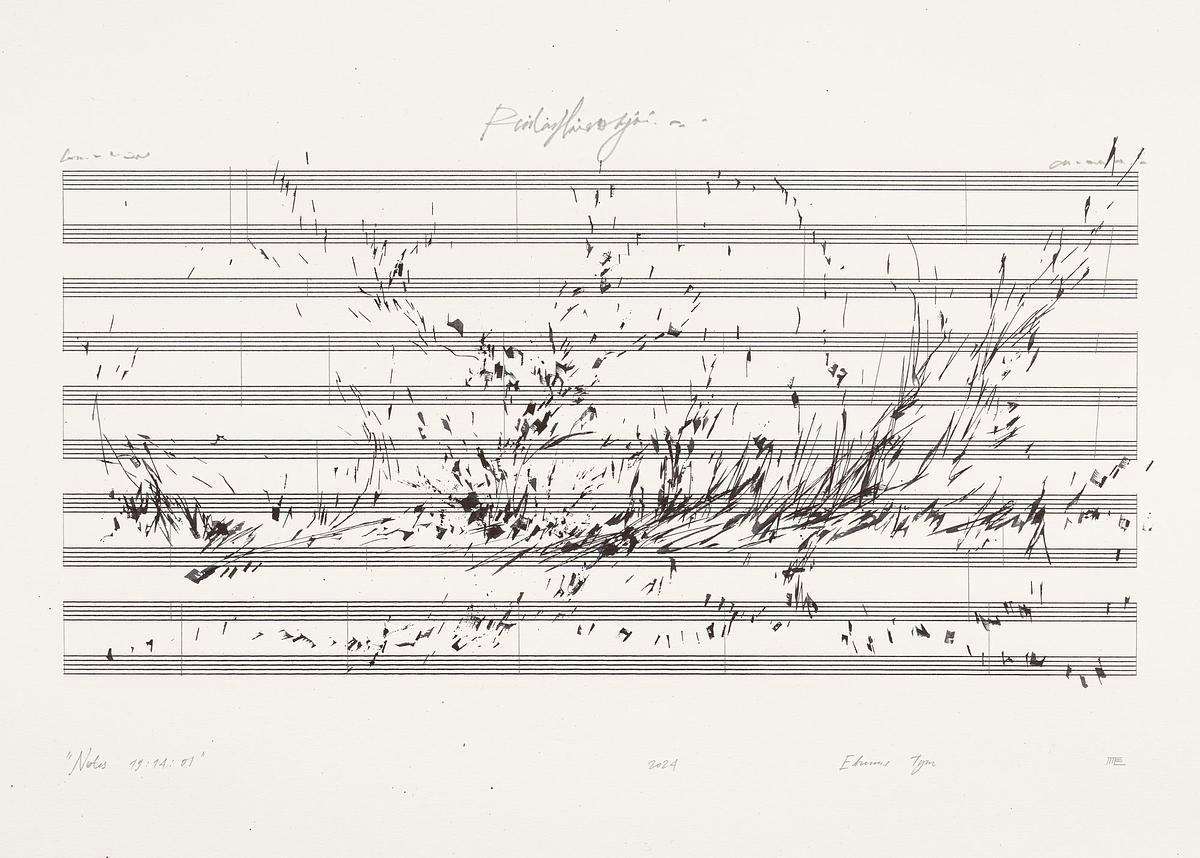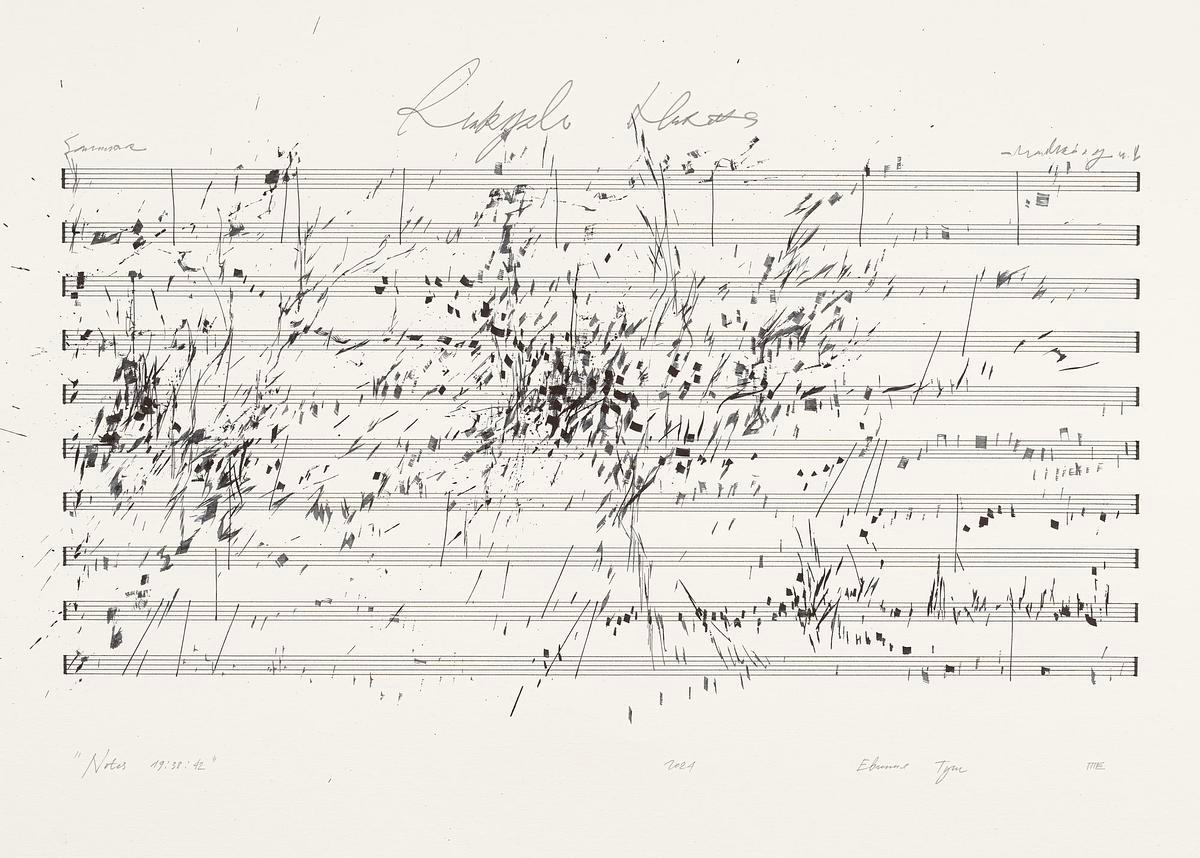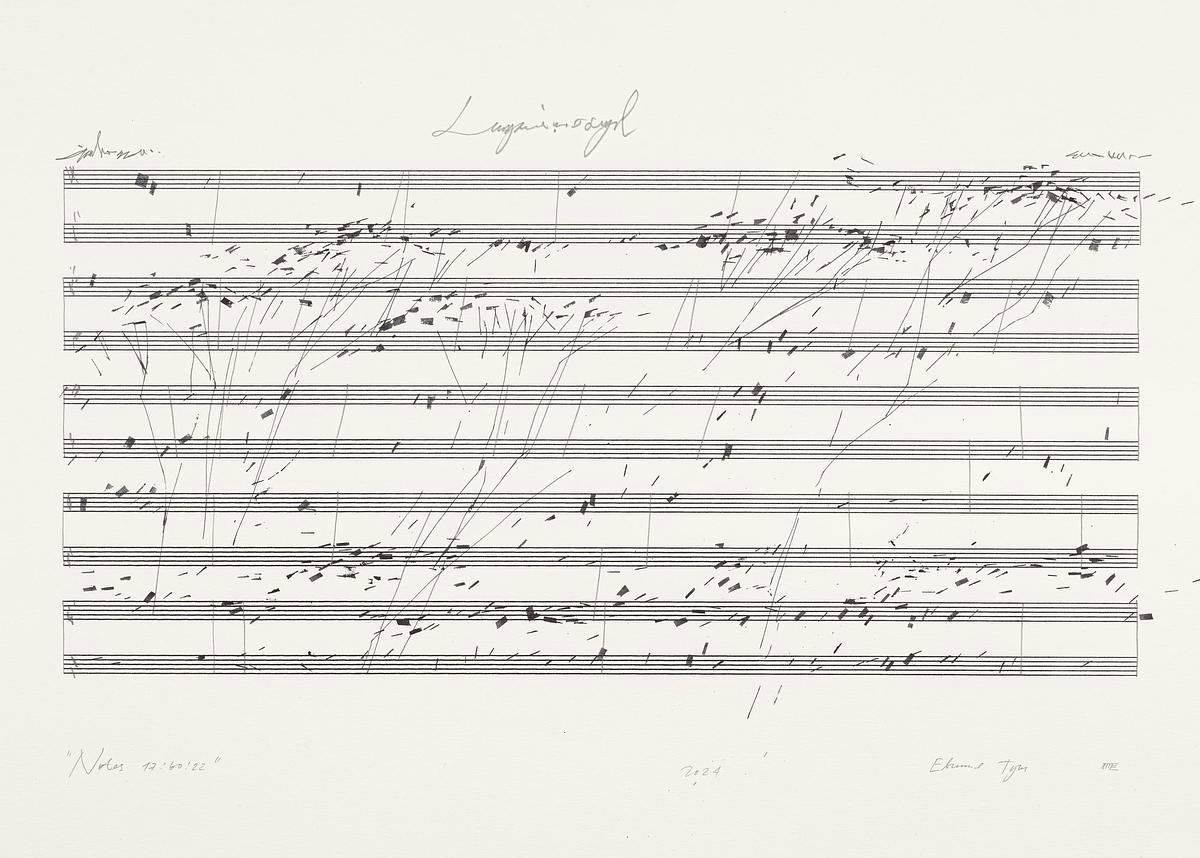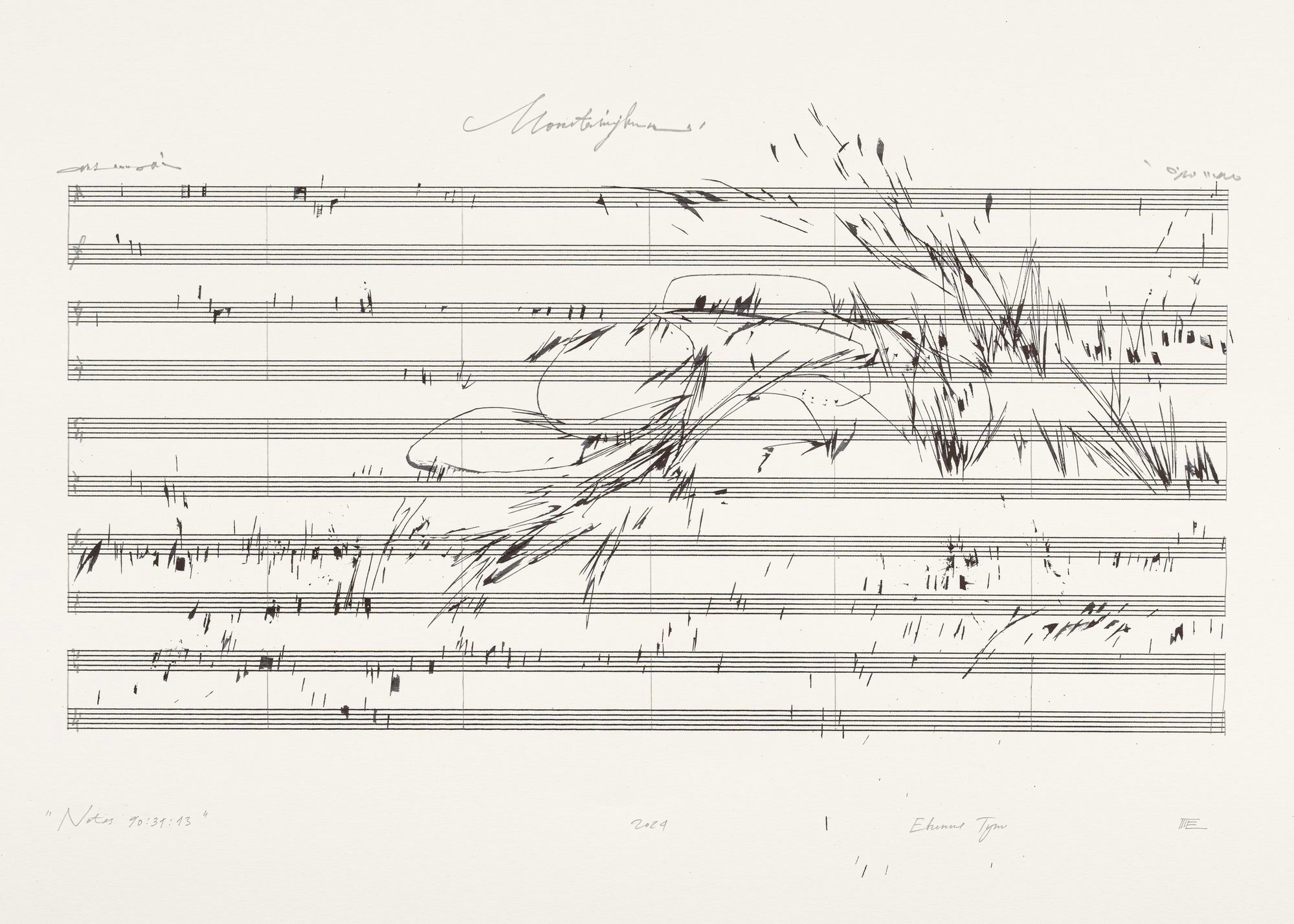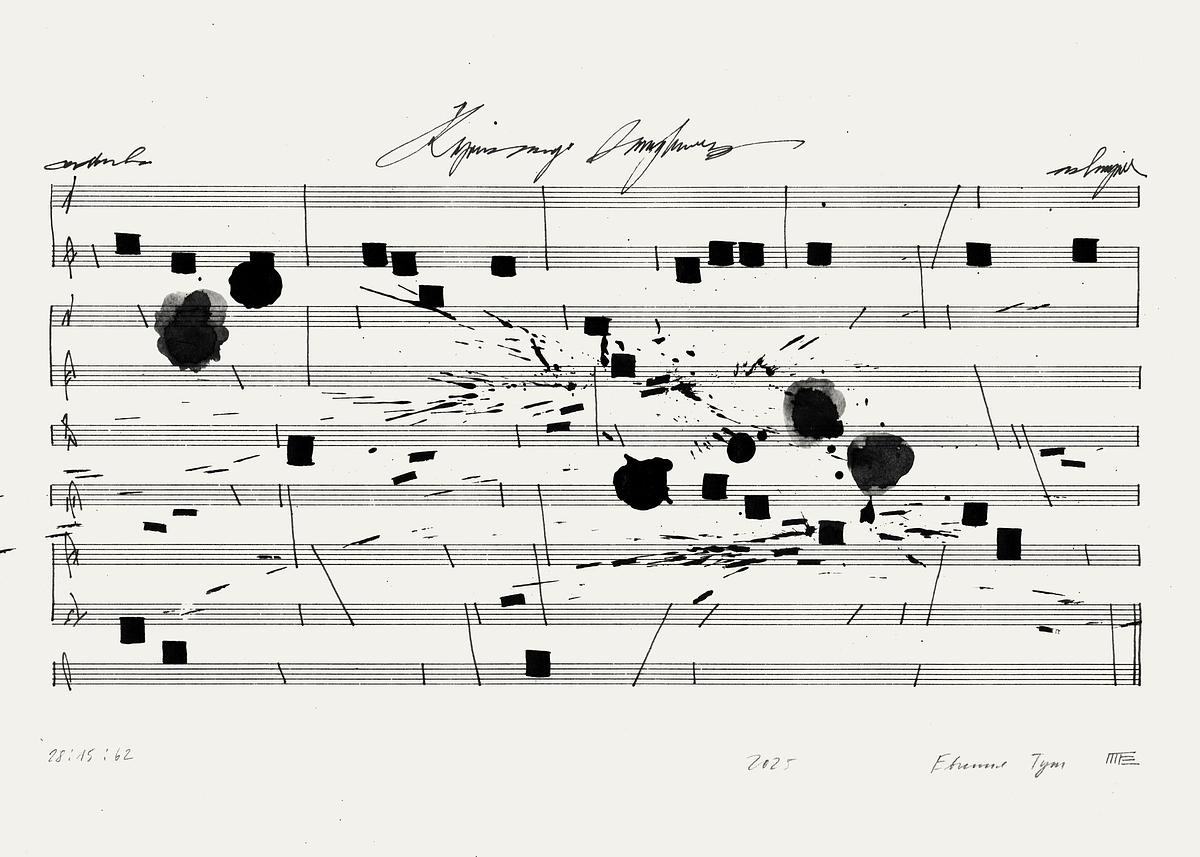
Whispers and shouts of London, cryptograms by Johann Sebastian Bach, the world premiere of Sacred Spring, and other stories in the new curatorial music programme at
Whispers and shouts of London, cryptograms by Johann Sebastian Bach, the world premiere of Sacred Spring, and other stories in the new curatorial music programme at
Two outstanding media theorists of the twentieth century, Roland Barthes and Marshall McLuhan, both told us: whatever talks about anything talks, first and foremost, about itself, or: the medium is the message. But what does music talk about? What can be the content of an art that lacks the semantic concreteness inherent to literature and painting? At various times, the meaning and the value of music have been sought in its unique internal form, inexpressible in any other way, in its ability to convey feelings and metaphysical ideas, or in the possibility of using it to address real-life tasks. The history of music is the history of attempts by musicians to maintain the identity of their art under the pressure of economic relations, philosophical interpretations, and technological progress. The curatorial series Music Hi(stories), which will run from January to June 2025 at
Illustration: Yevgenia Tut
There is something about music that keeps its distance even at the moment that it engulfs us.
— Aaron Copland, composer
Any composition is the sum of two vectors. One indicates the context in which the music arises, the other overcomes that context.
— Sergej Newski, composer
The sociologist Howard Becker noted that works of art are made where creative individuals and social relations intersect. The idea is nowhere better exemplified than in The Cries of London, a work for voices and instruments by the master composer of the English High Renaissance, Orlando Gibbons (1583–1625). Gibbons reproduces the voices of traders, beggars, cabmen, and passers-by in early seventeenth-century London, giving music history its first example of the field recording genre. The hubbub of European urban culture was also an inspiration for the work of Salamone Rossi (1570–1630): this outstanding figure of early Italian Baroque music led a double life as composer, pursuing a brilliant secular career as chief musician at the court of the Duke of Mantua, while at the same time reforming synagogue singing in the city’s Jewish community.
On closer inspection, social relations are the ultimate theme of Bach’s Musical Offering (1747)—a set of keyboard pieces based on a musical theme presented to the composer by King Frederick II of Prussia. The story of their relationship is encrypted in the text of this complex Baroque musical monument, which has traditionally been classed under the esoteric heading of “art for art’s sake.” According to recent research, the Musical Offering was never intended for concert performance, but was meant for a single addressee—Frederick himself, as the author of the Thema Regium (Royal Theme).
The interaction between words and music is a key theme of Music Hi(stories), and the first concert of the series demonstrates how radically different approaches to text in the works of three composers—Giya Kancheli, György Ligeti and Alexey Sysoev—build opposing scenarios for the interaction between stage and audience.
“Music and word are in a precarious balance, the struggle for supremacy is eternal. They play to a draw.” The formula of Dutch critic Elmer Schoenberger could be the epigraph of Enoch Arden (1897) by Richard Strauss. Disputes over the genre attribution of this epic score for narrator and piano are unresolved to this day since it can be perceived either as a musical work with spoken text or as a dramatic performance with piano accompaniment.
Richard Taruskin, author of the five-volume Oxford History of Western Music, located the source of musical meaning in social and cultural context: he explored the European musical canon as the outcome of collaboration and mediation that facilitated the work of composers but that also constrained them. The title of a new work from the contemporary Russian composer, Anton Svetlichny, inspired by Taruskin’s ideas, gives its name to the entire six-month concert series at
The forms in which music communicates with its public, performers, and commissioners, the ethics and economics of the creative process, and reflections within music itself on the methods of its own production and authorship—such are the themes of Music Hi(stories). The series brings together composers of four centuries in a single narrative, where the icon of musical conceptualism Johannes Kreidler, in the Russian premiere of his play Outsourcing (2009), can be seen as the direct heir of Ludwig van Beethoven and his monumental Diabelli Variations (1823).
Curator:
Dmitry Renansky
When: 23 Jan
Giya Kancheli, György Ligeti, Alexey Sysoev
Performers
Elene Gvritishvili, Fyodor Lednev, Moscow Contemporary Music Ensemble, N’Caged Vocal Ensemble
Yaroslav Timofeev concert host
When: 13 Feb
Johann Sebastian Bach
Performers
Out Ensemble
Yaroslav Timofeev concert host
When: 22 Feb
Richard Strauss, Victor Ryzhakov, Sergei Kasprov
When: 12 Mar
80th anniversary concert for Alexandre Rabinovitch-Barakovsky
Performers
Alexei Lyubimov, Sergei Davydchenko, Pavel Dombrovsky, Sergei Kasprov, Arseny Tarasevich-Nikolaev, Yury Favorin
When: 26 Mar
Johannes Kreidler
Performers
Moscow Contemporary Music Ensemble
When: 16 Apr
Salamone Rossi
Performers
One Orchestra, One Consort
When: 27 Apr
Arnold Schoenberg, Igor Stravinsky
Performers
Intrada Vocal Ensemble, Ekaterina Antonenko, Fyodor Lednev
When: 27 May
Alexey Sysoev
World premiere
Commissioned by
Performers
Moscow Contemporary Music Ensemble, Fyodor Lednev
Yaroslav Timofeev concert host
When: 31 May
Ludwig van Beethoven
Piano recital by Arseny Tarasevich-Nikolaev
When: 7 Jun
Anton Svetlichny
World premiere
Commissioned by
Performers
Moscow Contemporary Music Ensemble, Fyodor Lednev
When: 24 Jun
Orlando Gibbons, Richard Dering, Luciano Berio
Performers
Intrada Vocal Ensemble, Ekaterina Antonenko

